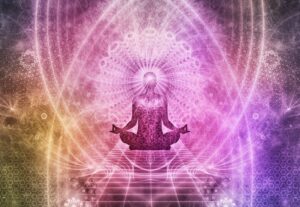 Here’s a party topic: What happens when you die? Even atheists can have fun contemplating the fate of consciousness on the body’s demise. This, of course, is a ubiquitous concern – every person at one time or another has pondered the thought of what follows the final breath; and some might be surprised to learn that similar views on the matter exist among different cultures and civilizations, showing either a primordial human intuition or our limits on comprehending potentialities which lie beyond the event horizon of our own intellect. However, I believe that thinking about this question can help bring peace of mind to the here and now, a way to assist one in living fearlessly, and for getting the absolute most out of our one certain lifetime, the only one that ultimately matters.
Here’s a party topic: What happens when you die? Even atheists can have fun contemplating the fate of consciousness on the body’s demise. This, of course, is a ubiquitous concern – every person at one time or another has pondered the thought of what follows the final breath; and some might be surprised to learn that similar views on the matter exist among different cultures and civilizations, showing either a primordial human intuition or our limits on comprehending potentialities which lie beyond the event horizon of our own intellect. However, I believe that thinking about this question can help bring peace of mind to the here and now, a way to assist one in living fearlessly, and for getting the absolute most out of our one certain lifetime, the only one that ultimately matters.
According to ancient Indo-Aryan traditions (Hinduism, Buddhism, Jainism, etc), life proceeds through perpetual cycles of birth, life, death, and rebirth, spiraling into ever-higher realms and forms. They call this process Samsara, which essentially means, “wandering through successive states of mundane existence.” To understand the true essence of this concept, one must focus on the terms wandering and mundane. To the Indian mind, material or worldly existence was a form of aimless roving through illness, loss, poverty, unrealized desires, and other countless sufferings. Until one applied one’s mind toward spirit, only then could one attain moksha, or liberation, from the repeated cycle of pain and suffering that is the human existence. And this is the important part: only the body dies, the form, while the formless soul (Atman) exists eternally in bliss (Ananda). Reincarnation was associated with the cycle of karma, which was believed to influence the future lives on the cycle of Samsara.
 Reincarnation is not purely an eastern conception, however, but a western one as well, as the ancient Greeks also believed in the soul’s transmigration from one body to another over time. Orpheus, Pythagoras, and Plato all discussed rebirth and the movement of the soul from freedom to its captivity within the body. To Plotinus, the immortal Soul was the divine emanation of the Intelligence (Nous), and it was corrupted by the body to forget its divine nature. It is the role of the Soul to “remember” its oneness with the source (The One), and it does this through recurring material existence until it is reminded completely of its true place and state in the Divine Realm. Like the Indo-Aryan ideas on reincarnation, the Ancient Greeks believed that only the body dies, while the eternal Soul migrates from body to body until it remembers, and ultimately returns to, its Divine origin.
Reincarnation is not purely an eastern conception, however, but a western one as well, as the ancient Greeks also believed in the soul’s transmigration from one body to another over time. Orpheus, Pythagoras, and Plato all discussed rebirth and the movement of the soul from freedom to its captivity within the body. To Plotinus, the immortal Soul was the divine emanation of the Intelligence (Nous), and it was corrupted by the body to forget its divine nature. It is the role of the Soul to “remember” its oneness with the source (The One), and it does this through recurring material existence until it is reminded completely of its true place and state in the Divine Realm. Like the Indo-Aryan ideas on reincarnation, the Ancient Greeks believed that only the body dies, while the eternal Soul migrates from body to body until it remembers, and ultimately returns to, its Divine origin.
 Other civilizations believed strongly in an afterlife. Whereas reincarnationists believed in an immortal soul which recycled in form and intellect, a tenet of the Abrahamic religions (Judaic, Christian, Islam) is that our soul is indeed immortal but only exists at one time in materiality. Upon death, the soul proceeds to either a heaven or hell. There are many different interpretations of what constitutes a heaven or hell, such as whether they are actual dimensions or simply states of being for the soul. The names also differ from religion to religion, but they all believe in the desirability of one (the heaven) with its eternal graces for the virtuous, and the repugnance of the other (the hell) with its fire and brimstone for the damned. In these belief systems, as in the karmic-based ones, a soul’s eternal future depends on how the person acts in this lifetime. The Pagans, too, believed in an afterlife, in which the immortal soul was either banished to the underworld or exalted into a heavenly garden reserved for the valiant and good-hearted.
Other civilizations believed strongly in an afterlife. Whereas reincarnationists believed in an immortal soul which recycled in form and intellect, a tenet of the Abrahamic religions (Judaic, Christian, Islam) is that our soul is indeed immortal but only exists at one time in materiality. Upon death, the soul proceeds to either a heaven or hell. There are many different interpretations of what constitutes a heaven or hell, such as whether they are actual dimensions or simply states of being for the soul. The names also differ from religion to religion, but they all believe in the desirability of one (the heaven) with its eternal graces for the virtuous, and the repugnance of the other (the hell) with its fire and brimstone for the damned. In these belief systems, as in the karmic-based ones, a soul’s eternal future depends on how the person acts in this lifetime. The Pagans, too, believed in an afterlife, in which the immortal soul was either banished to the underworld or exalted into a heavenly garden reserved for the valiant and good-hearted.
Of course, some may offer a third possibility, which is the complete oblivion of consciousness at the time of death. The notion of nonexistence is frightful for many, often subconsciously, and it underlies most if not all human fears. Pondering nothingness is extremely difficult for the vast majority of us, so the notion of it being our fate does not promote peace of mind. Further, resuscitation sciences – the medical study of keeping dying people alive – show some interesting findings with regard to near-death experiences. According to Dr. Sam Parnia, MD, PhD, Director of Critical Care & Resuscitation Research at the NYU School of Medicine, we call them “experiences” of death because that’s what it appears to be exactly. He explains what people have reported following resuscitation from cardiac death, where the heart has stopped functioning but the brain has not yet reached irreversible brain damage (brain death):
“People report a unique cognitive experience in relation to death. They may have a perception of seeing their body and the doctors and nurses trying to revive them, yet feel very peaceful while observing. Some report a realization that they may have actually died.
Later they develop a perception or a sensation of being pulled towards a type of destination. During the experience, they review their life from birth, until death, and interestingly this review is based upon their humanity.
They don’t review their lives based on what people strive for, like a career, promotions, or an amazing vacation. Their perspective is focused on their humanity. They notice incidents where they lacked dignity, acted inappropriately towards others, or conversely, acted with humanity and kindness.
They re-experience and relive these moments, but also, what’s fascinating, which sort of blows me away because I can’t really explain it, is they also describe these experiences from the other person’s perspective.
If they caused pain, they experience the same pain that other person felt, even if they didn’t realize it at the time. They actually judge themselves. They suddenly realize why their actions were good or bad, and many claim to see the downstream consequences of their actions.”
It’s almost as if consciousness is operating outside of the brain, as if a separate substance from body is responsible for what we deem awareness.
No logical argument can be made in either direction to prove whether we are immortal souls transmigrating from one lifetime to another or whether we can look forward to, or fear, an eternity of heaven or hell. Both options serve a purpose psychologically to either lessen the fear of nonexistence, which the nothingness of oblivion offers, or to guide behaviors by which to live one’s life, in the event an afterlife of punishment or paradise does, in fact, await us. I think it’s valid to question whether these ideas on life-after-death were conceptualized and promoted to act as a societal control for growing populations. As societies grew, any assistance in keeping people civilized had to be welcomed, and what better way to maintain order than through self-imposed moral restraints. Also true is that the topic of immortality is rarely considered outside of moral contemplations (I was kidding about the party talk), so it is hard to imagine the concept evolving independently from how we expected societies to act as a whole.
 Not even oblivion can be proved. But what sets the idea of life-after-death apart from nothingness is that it provides a potentiality from which to bring about peace of mind. If our fundamental fear is the potentiality of non-existence, then its antipode has to have the opposite effect. Oblivion has nothing, literally, to look forward to, and while imagining an afterlife or other material existences may indeed be fantasy, it would have intrinsic value, as the human mind seems to thrive when it has something to look forward to. The mathematician Blaise Pascal and the philosopher John Locke both wagered that the benefits of imagining immortality outweighed its downsides, because, they reasoned, it would be better to be wrong about an afterlife (or karmic cycle) and simply get nonexistence – “he is not miserable; he feels nothing” – than to deny it, act haphazardly, and then ultimately face judgment if an afterlife does, in fact, exist.
Not even oblivion can be proved. But what sets the idea of life-after-death apart from nothingness is that it provides a potentiality from which to bring about peace of mind. If our fundamental fear is the potentiality of non-existence, then its antipode has to have the opposite effect. Oblivion has nothing, literally, to look forward to, and while imagining an afterlife or other material existences may indeed be fantasy, it would have intrinsic value, as the human mind seems to thrive when it has something to look forward to. The mathematician Blaise Pascal and the philosopher John Locke both wagered that the benefits of imagining immortality outweighed its downsides, because, they reasoned, it would be better to be wrong about an afterlife (or karmic cycle) and simply get nonexistence – “he is not miserable; he feels nothing” – than to deny it, act haphazardly, and then ultimately face judgment if an afterlife does, in fact, exist.
 If the notion of death can be equated to “moving on to the next adventure,” then not only is the mind brought to a place of tranquility, but it can also act as foundation to living one’s life to the fullest. Our fears can, and often do, act as limiting factors to what we might try in life, and thus what we accomplish. The primary fear of nonexistence, and its twin fear of death, is most often expressed as a fear of failing. This fear can be strong enough to keep people from taking risks and thus receiving the rewards that come with them. Those that allow their fears to control what they go after often prevent themselves from living magnificent lives. People who live, and act, fearlessly not only surprise themselves in unleashing power which they didn’t know they possessed, but they might even find themselves doing things never before conceived or carried out by another human in history. Everybody can think of someone who fits this profile. Most of the time, great accomplishers do not let their fears guide them. I have heard it said that overcoming the fear of death allows people to truly live.
If the notion of death can be equated to “moving on to the next adventure,” then not only is the mind brought to a place of tranquility, but it can also act as foundation to living one’s life to the fullest. Our fears can, and often do, act as limiting factors to what we might try in life, and thus what we accomplish. The primary fear of nonexistence, and its twin fear of death, is most often expressed as a fear of failing. This fear can be strong enough to keep people from taking risks and thus receiving the rewards that come with them. Those that allow their fears to control what they go after often prevent themselves from living magnificent lives. People who live, and act, fearlessly not only surprise themselves in unleashing power which they didn’t know they possessed, but they might even find themselves doing things never before conceived or carried out by another human in history. Everybody can think of someone who fits this profile. Most of the time, great accomplishers do not let their fears guide them. I have heard it said that overcoming the fear of death allows people to truly live.
I think that thinking about death is important. Studies have shown that talking about death regularly actually diminishes anxiety over it. Since death is inevitable, having a healthy, hopeful outlook on it and what lies beyond cannot hurt. As I have already mentioned, there is no logical argument that can prove or disprove any of the theories I have discussed above, so like Pascal or Locke, why not choose the one which allows you the greatest psychological advantage? Or maybe consider the benefits of all potentialities I have discussed here, and weigh each in equanimity. Plato states, through his favorite protagonist and teacher Socrates, that “…either death is a state of nothingness and utter unconsciousness, or, as men say, there is a change and migration of the soul from this world to another… [either way] be of good cheer about death, and know of a certainty, that no evil can happen to a good man, either in life or after death.”


















